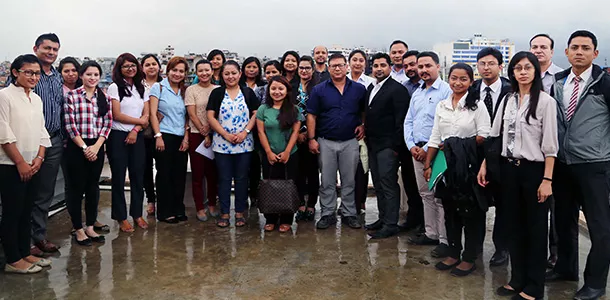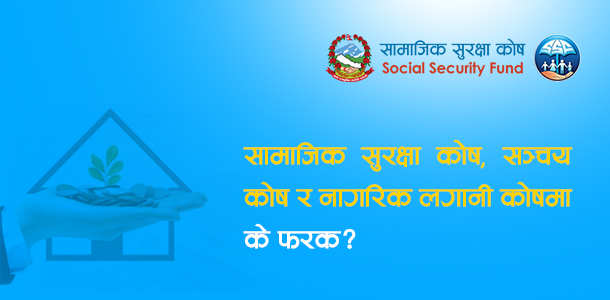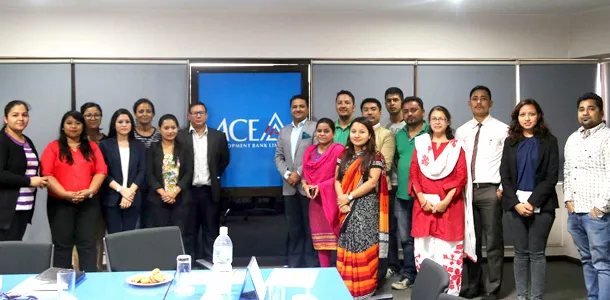
84th HR Kurakani organized on “SSF: Moving Forward”
Category: HR Kurakani | Date: Nov. 30, 2019, 5:45 p.m. | Total Views: 4143
HR Kurakani, an open platform organized since past eight years by Real Solutions successfully completed its 84th editions focused on the topic “SSF: Moving Forward" on November 27th, 2019 at Premier Insurance Company (Nepal) Ltd. HR Practitioners from different organizations participated in the discussion program.
Ms. Nibha Shakya welcomed all the participants with summary of HR Kurakani, followed by Session from, Mr. Amit Sharma, HR Manager of Laxmi Bank Limited. Despite the good intentions from the government, the Social Security Fund faces a lot of challenges to overcome, hence the Kurakani was based on heaps the scheme has to address in order to become a meaningful social security programme.
The government launched the ambitious, contribution-based Social Security Fund (SSF) on November 27, 2018. Under it, the employer would contribute 20% of the basic salary of the employees and the employee would contribute 11% to the fund. Of the contributed amount, 3.22% will be utilised for medical, health and maternity benefits; 4.52% for accidental and disability benefits; 0.87% for dependent family members and 91.39 per cent for old-age security.
After the announcement of Social Security Fund (SSF), private sector professionals have found themselves enveloped in clouds of confusion. The perplexity became even more obvious during the HR Kurakani where the HR Professionals from diverse organizations expressed their views on several issues concerning the SSF and discussed how the ambiguous rules and regulations and their incompatibility to the existing practices in people management can affect the work environment of the organizations.
The provisions related to pensions for the private sectored employees is one example. As per the prevailing arrangement, job holders in the civil service, army and police start receiving pension right after their retirement. However, the SSF rules require private sector employees to reach 60 years of age and 15 years of contributions to the fund to be eligible for the pension. In this regard, the pension system in SSF seems to be discriminatory for the private sector employees.
There are also concerns related to the principle amount of money of an employee that will be deposited in SSF. In case of death of a pensioner, his/her spouse will get 60 percent of the pension amount for life. However, if the spouse is employed, the money won’t be paid. Similarly, children above 18 years of age will get nothing in case their parents are dead.
Addressing the current scenario, participants in the Kurakani shared that not all retirees want to live the rest of their life with the monthly pension. If a contributor receives a lump sum amount instead of monthly pension upon retirement and deposits it in a fixed deposit bank account or buys a debenture or invest in real estate, stock market or keep the money, it might help the in their business or finance their different life necessities and priorities.
After remarks sharing form the HR professionals from diverse organization, the 84th HR Kurakani then officially ended with a vote of thanks. As SSF is a new scheme HR Professionals agreed that it needs appropriate infrastructure, a trained workforce, and, above all, clarity in rules, regulations and plans.



